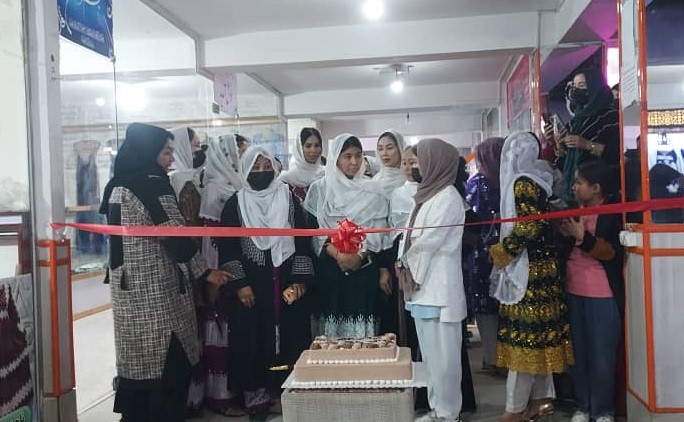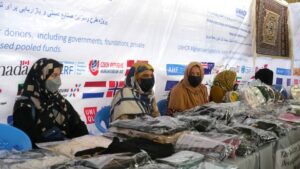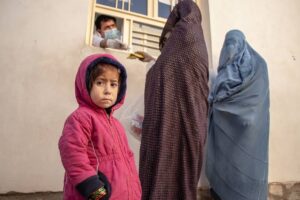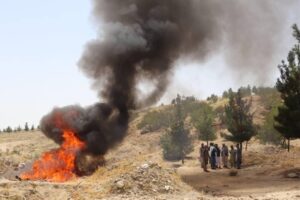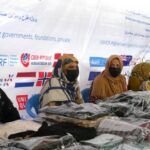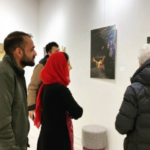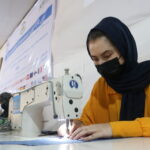The management of the Hussainzada trading market in Dasht-e Barchi, located in western Kabul, has made approximately 40 shops available to women and girls engaged in business for free for six months.
These forty shops were inaugurated yesterday (Friday, November 29) during a ceremony by Hamza Qasemi, the manager of this trading market. Mr. Qasemi stated, “These shops, located on the third floor of the ‘Hussainzada’ market, have been provided free of charge to support women who are involved in small businesses.”
Nafeesa Hairan, one of the shopkeepers in this market, mentioned that various products, including handmade clothes, leather goods, and Hazara handicrafts, are sold in these stores.
Mr. Hairan emphasized that the women and girls working in this market send raw materials such as fabric and thread to women in remote areas, creating job opportunities for hundreds of women.
He added that the capital of these women varies from 100,000 to 500,000 Afghanis, which they have secured themselves, and their goal is to promote domestic production and self-sufficiency in trade.
In this market, job opportunities have been created for over forty women and six men, and buying and selling are open to all.
However, some women entrepreneurs have expressed concerns about the lack of a suitable market and have called for the organization of handicraft exhibitions both domestically and internationally.
Several of them cite the importation of similar goods, travel visa restrictions, and challenges regarding raw materials as key obstacles to their work.
They have stated that the market for imported foreign goods remains stronger than that for domestic products.
This initiative comes at a time when the government has imposed severe restrictions on girls and women for over three years. Currently, girls and women are unable to attend school or university.
The current government’s actions have resulted in millions of female students being deprived of education.
Additionally, women have been banned from going to sports clubs, restaurants, public baths, being examined by male doctors, traveling without a male guardian, and working in domestic and international NGOs, as well as even in UN offices in Afghanistan.

